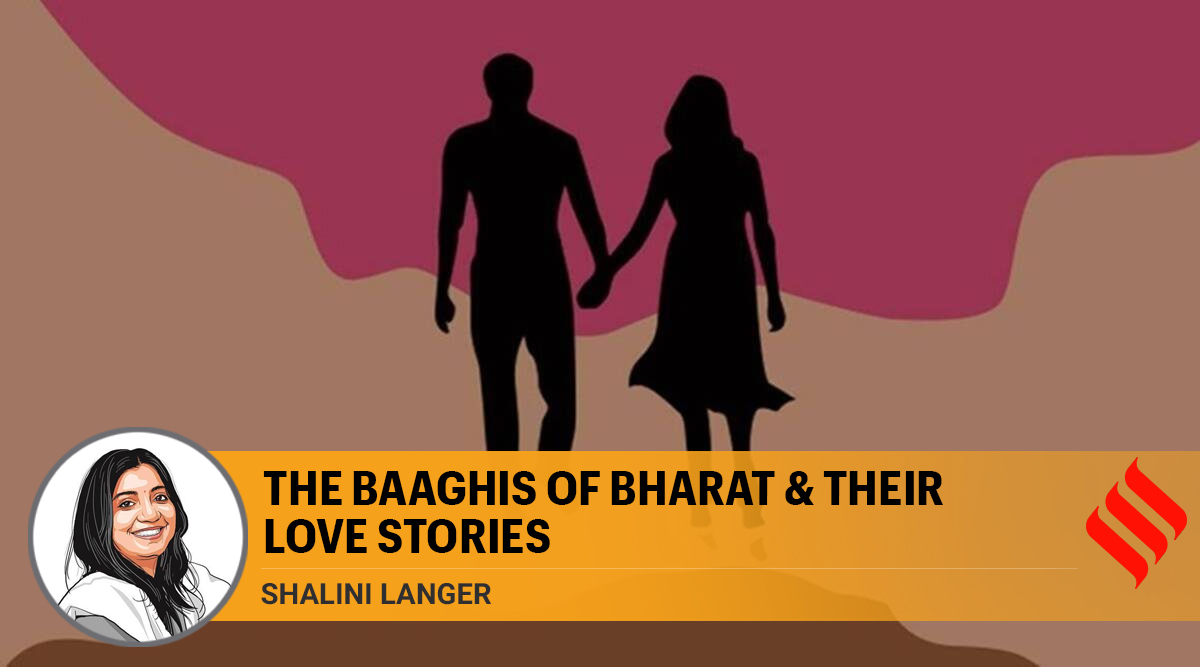
A glance, a connection. A second to last a lifetime. Two hands breathtakingly short of each other. A touch treasured, a touch lost. The endless conversations, the things left unsaid. The moments stolen. The ache that won’t die, the ache whose memory puts a smile on your face.
What do you call a love story like that, where love and story go two different ways? Which doesn’t really begin, but doesn’t really end, which isn’t happy enough or tragic enough to be immortalised in art? All that it is, is just enough?
We all know love of that kind. Those of us of an older vintage — pre-mobile phones and pre-Uber, pre-spare family cars and pre-dating apps — more than others. Love for us was tricky territory, to be navigated at own peril, overcoming mundane odds, too mundane for even a notable mention.
So, it’s with wonder then that we can but view the Rashids and the Pinkis of Uttar Pradesh, fighting for their love against not just their families, societies or the dime-a-dozen Hindu outfits, but also the might of Yogi Adityanath’s Uttar Pradesh. It’s a state that unerringly finds a cause for itself that has nothing to do with its status as among the worst faring on all indices.
The Rashids and the Pinkis are not just proclaiming their love in public, they are doing this denouncing that State on media, in courts, inside lock-ups, from hospital beds, against threats. In a society where love must find and lurk in rare solitude, they are refusing to fade away when forced, even dragged into the light.
And look where they are finding their love too, across communities, across classes, in coaching institutes, at salons, at work places, in small towns — defying boundaries that have for centuries been drawn for them, the baaghis of Bharat sparking its many million mutinies.
For, if the Uttar Pradesh Prohibition of Unlawful Conversion of Religion Ordinance, 2020, tells us one thing, it is this: that if 14 cases are what the police registered in a month of the new law, with all the resources at its command, how many more would be out there who, as we write this, are defining their own destinies. It also tells us that if governments have to step in as monitors of love, and be forced to continuously amend their laws so as to “tighten” them, always couched under other names, how resilient love is.
As Pinki returns to Rashid’s home in Moradabad, as Rashid and his brother Suleman are released from jail, as his parents welcome them back, the couples of Uttar Pradesh must know that it is they who will win eventually.
In the quiet of our rooms, or in the anonymity of dark cinema halls, all of us have shed tears over forbidden love — a theme that resonates with something deep within us. Yet, perhaps one of the most moving episodes in Bollywood’s long affair with star-crossed lovers is father Dalip Tahil embracing a sobbing Aamir Khan, who has just been found out with the daughter of their “sworn enemy”, in Qayamat Se Qayamat Tak. He tells his son to go to sleep, “we will talk tomorrow”.
Released in 1988, that film, with all its whiff of a new India, never lived up to the promise held by those four words. But, as we enter yet another new year, imagine the power those four words still hold in vanquishing the bogey known by those two incongruous words: love jihad.
National Editor Shalini Langer curates the fortnightly ‘She Said’ column
"Love" - Google News
January 03, 2021 at 10:23AM
https://ift.tt/353un0J
The baaghis of Bharat & their love stories - The Indian Express
"Love" - Google News
https://ift.tt/35xnZOr
https://ift.tt/2z10xgv
Bagikan Berita Ini














0 Response to "The baaghis of Bharat & their love stories - The Indian Express"
Post a Comment